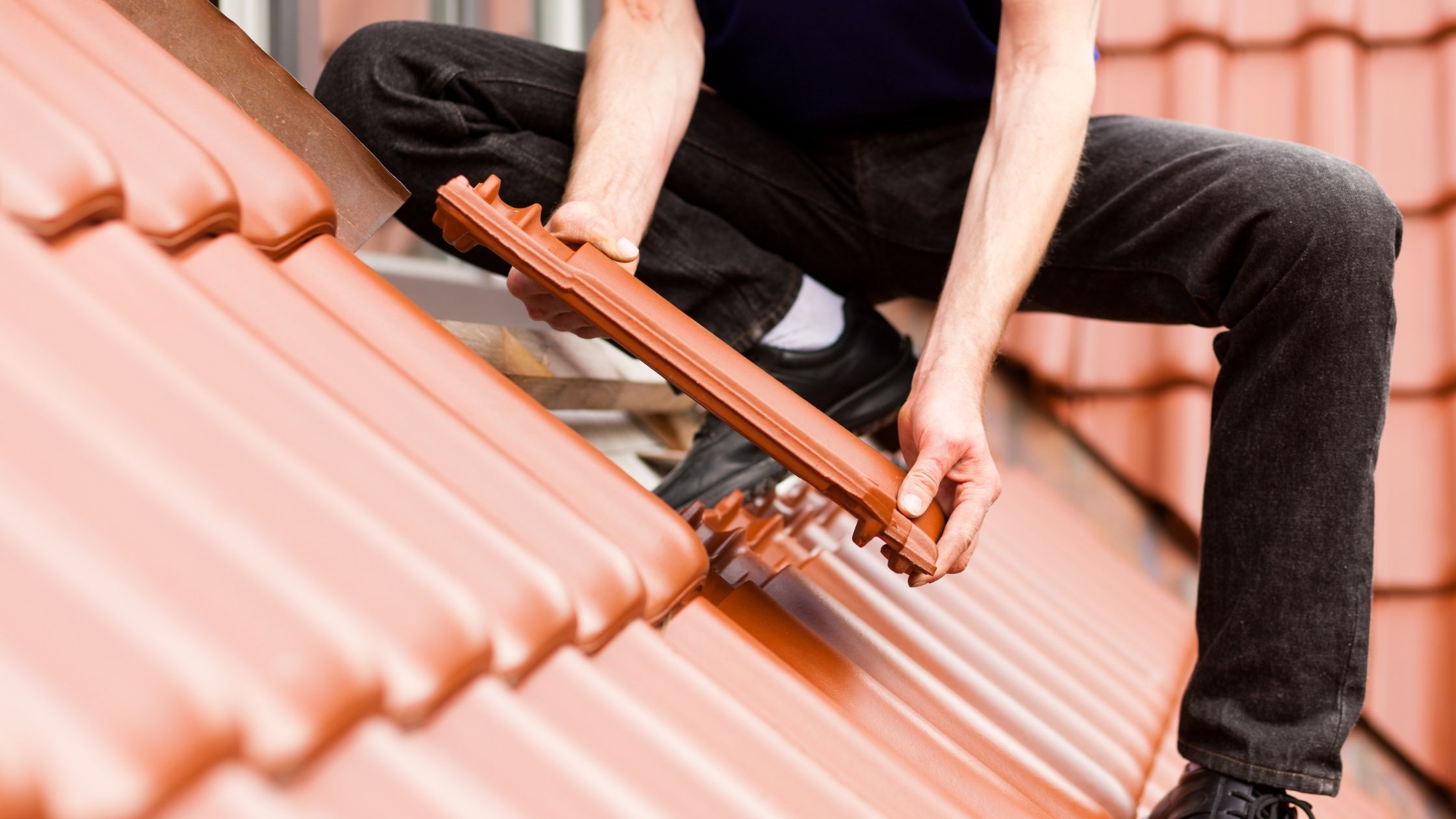Lifestyle
How to Prepare Your Roof for Storms and Hurricanes: A Comprehensive Guide

Your home is in grave danger from storms and hurricanes, and your roof is especially vulnerable. If your roof is not adequately reinforced, the combination of powerful winds, torrential rain, and airborne debris can cause significant destruction. It’s essential to take a proactive approach by strengthening and bolstering your roof before any impending storm in order to protect both your property and the safety of your loved ones. In this post, we’ll look at useful tips for putting your roof in shape to endure storms and hurricanes.
Inspect and Maintain Regularly
The first step in storm and hurricane preparedness is to perform regular roof inspections. Inspecting your roof at least twice a year can help identify and address issues before they become major problems. Look for loose or damaged shingles, cracks in the roofing material, and signs of water damage in your attic. Address any problems promptly to ensure your roof is in top condition when a storm approaches.
Reinforce Weak Spots
Identify any weak spots in your roof, such as areas with loose shingles, damaged flashing, or gaps around vents and chimneys. Reinforce these areas by replacing or repairing damaged materials. Use roofing cement or sealant to secure loose shingles and seal any gaps that could allow water infiltration.
Trim Overhanging Branches
Overhanging branches can become dangerous projectiles during a storm or hurricane. Trim back trees near your home to prevent them from causing damage to your roof. Additionally, keeping trees well-maintained reduces the risk of branches falling onto your roof during high winds.
Install Hurricane Straps
Hurricane straps or clips can help secure your roof to the walls of your home, preventing it from being lifted off during strong winds. These metal connectors are typically installed at the roof-wall intersection and provide extra stability in severe weather conditions. Consult a roofing professional to determine the best type of hurricane straps for your roof.
Reinforce Roof Decking
The roof decking is the layer beneath your roofing material. It provides structural support for your roof. Strengthening your roof decking can enhance its ability to withstand hurricane-force winds. Consider installing thicker plywood or OSB (oriented strand board) and ensure it is properly nailed or screwed down.
Invest in Impact-Resistant Shingles
Consider upgrading your roofing material to impact-resistant shingles. These shingles are designed to withstand high winds and resist damage from hail and flying debris. They can significantly improve your roof’s resilience during a storm or hurricane.
Secure Loose Items
Before a storm hits, secure or remove loose items from your roof, such as antennas, satellite dishes, and loose debris. These items can become projectiles during high winds and cause damage to your roof and neighboring properties.
Clean Your Gutters and Downspouts
Ensure that your gutters and downspouts are free from debris and clogs. Properly functioning gutters and downspouts will help divert rainwater away from your home, preventing water damage and potential leaks.
Consider Roof Coatings
Elastomeric or reflective roof coatings, for example, can add an additional layer of protection to your roof. These coatings can help your roof be more durable and watertight while also reflecting heat and cutting down on energy expenditures.
Getting your roof ready for storms and hurricanes is a crucial step in ensuring the safety of your house and your family. By following these suggestions and taking proactive measures to reinforce and maintain your roof, you can significantly reduce the chance of storm-related damage. Always seek the advice of roofing experts before making any big repairs or modifications, as their knowledge can significantly impact your roof’s capacity to endure severe weather occurrences.
Lifestyle
The Breakroom Reset: Small Changes That Improve the Workday

The office breakroom is a space that’s often neglected and can sometimes feel more like an afterthought than a key feature of the workplace. This is unfortunate, especially since employees typically visit the breakroom to rest and recuperate before finishing their shift. Considering its intended function, the breakroom should be viewed as one of the most important spaces in the entire office.
Having a welcoming and rejuvenating breakroom can promote social interaction, enhance workplace culture, and reduce stress. Employees who feel restored after visiting the breakroom are more likely to feel happy at work and be more productive the rest of the day. If your workplace breakroom leaves a lot to be desired, here are some small changes you can make to totally reset it.
Small Breakroom Changes That Improve the Workday
Unless your breakroom is in shambles and needs major reconstruction, you don’t have to spend a fortune on it to make it more inviting. In many cases, small and simple changes can make a big impact on the overall vibe of any space.
Whether you’re working with a limited budget or limited space, there are still plenty of things you can do to reset your boring breakroom. Here are some small breakroom changes that can improve the workday and give you maximum bang for your buck.
Convenient Hydration Options
Employees need to stay hydrated to keep their health and energy levels high. Unfortunately, many employees are chronically dehydrated because they don’t have access to tasty beverages at work. This doesn’t necessarily mean you have to install a soda machine in the breakroom. Giving workers unlimited access to sugary drinks could backfire in the long run by contributing to illnesses and increased sick days.
Instead of offering sugary beverages (that can actually contribute to dehydration in the long run), make it easier for your employees to stay hydrated with pure water. Providing a filtered office drinking water system is one of the best ways to encourage optimal hydration. Most employees will appreciate the clean, tasty alternative to standard office tap water.
Comfy Seating
When was the last time you took a look at the seating arrangements in your breakroom? If it’s been a while, take a walk over there and give it a good look. Is there sufficient space for multiple employees to sit at the same time? Are the seats comfortable and rearrangeable so employees can interact with others or achieve greater privacy as desired? If not, you might benefit from a breakroom seating reset.
Seating arrangements in breakrooms should be both comfortable and flexible. You might want to bring in some modular furniture because it’s easy to move and rearrange as needed. For maximum versatility, seating arrangements should include a mix of traditional breakroom chairs and tables, lounge chairs, and even bean bags. Making the space as open as possible will also help it look more roomy and inviting.
Nutritious Snack Options
Most employers don’t provide full meals for their employees. It’s perfectly reasonable to expect workers to make their own lunch or dinner arrangements. However, if you want to support your employees’ energy levels, keep healthy snacks in your breakroom. Nutritious snacks can enhance employee performance throughout the day, so workers find it easier to get more done.
Instead of investing in chips, candy bars, and other sugary sweets, opt for snack options that won’t cause sugar spikes and inevitable crashes. Some great options include trail mixes, protein bars, fresh fruit, popcorn, and veggie trays. Instant oatmeal cups can also be a convenient source of energy for those who don’t have time to grab breakfast before heading to work. You might want to send out an employee survey to see what types of healthy snacks your workers prefer.
Optimal Lighting
Did you know that poor lighting can negatively impact your employees’ psychological and emotional well-being? Improving workplace lighting (including in the breakroom) can make a huge difference in worker morale and energy levels. Warm white light may be a great choice for the breakroom because it creates a soothing, calm atmosphere. Cool white light might be a better fit for conference rooms and cubicle areas because it enhances focus and energy.
Of course, natural light is arguably the best option for the office whenever it’s available. If your breakroom has windows, try to keep the shades open during working hours. That way, employees can experience the mood- and health-boosting benefits of natural light exposure.
Entertainment Options
Some office managers and CEOs mistakenly think that a breakroom should be boring to serve its purpose well. However, the terms “boring” and “relaxing” are not synonymous. Employees may find a boring breakroom to be surprisingly non-restorative. On the flip side, a room equipped for entertainment can be very relaxing and rejuvenating.
To make your breakroom a more enjoyable place to spend time, you might want to install a corner television. That way, workers can watch their favorite sitcom while they relax. You might also keep a few card or board games stocked in a cupboard for employees who prefer to interact in fun ways during their lunch breaks.
Reset Your Breakroom Today
Your employee breakroom can reveal a lot about your overall workplace environment. If it’s not lit well, or if it’s boring and unwelcoming, workers are more likely to feel underappreciated and discontented. The good news is that you don’t have to sink a lot of money or effort into resetting your breakroom and getting a fresh start. Use these simple tips to revamp your breakroom and make it a place where workers can go to feel truly cared for and relaxed.
-

 Tech5 years ago
Tech5 years agoEffuel Reviews (2021) – Effuel ECO OBD2 Saves Fuel, and Reduce Gas Cost? Effuel Customer Reviews
-

 Tech6 years ago
Tech6 years agoBosch Power Tools India Launches ‘Cordless Matlab Bosch’ Campaign to Demonstrate the Power of Cordless
-

 Lifestyle7 years ago
Lifestyle7 years agoCatholic Cases App brings Church’s Moral Teachings to Androids and iPhones
-

 Lifestyle5 years ago
Lifestyle5 years agoEast Side Hype x Billionaire Boys Club. Hottest New Streetwear Releases in Utah.
-

 Tech7 years ago
Tech7 years agoCloud Buyers & Investors to Profit in the Future
-

 Lifestyle5 years ago
Lifestyle5 years agoThe Midas of Cosmetic Dermatology: Dr. Simon Ourian
-

 Health7 years ago
Health7 years agoCBDistillery Review: Is it a scam?
-

 Entertainment7 years ago
Entertainment7 years agoAvengers Endgame now Available on 123Movies for Download & Streaming for Free
